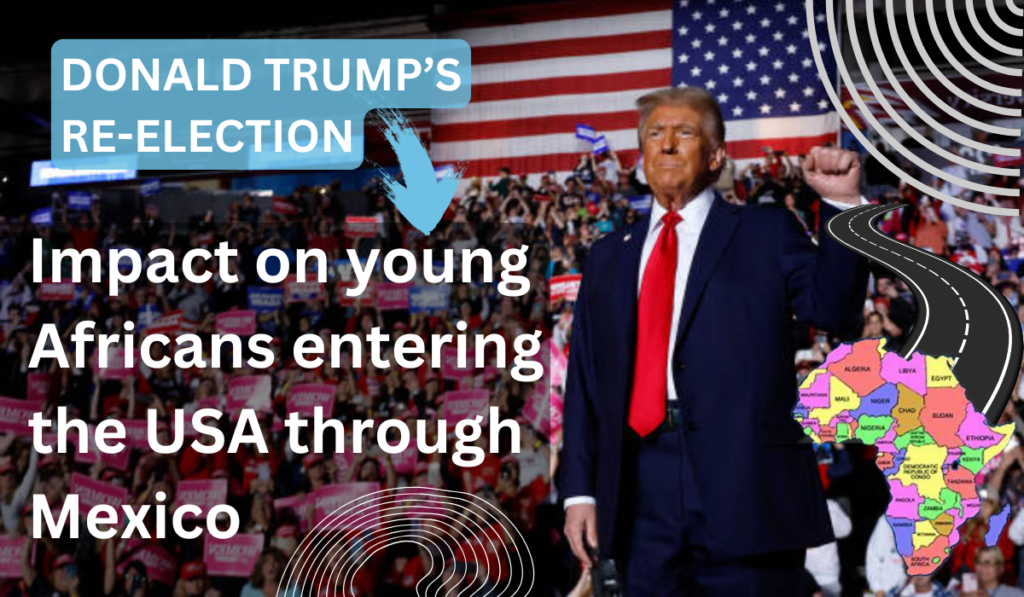Donald Trump's victory in the 2024 U.S. presidential election signals a significant return to strict immigration policies reminiscent of his first term.
For young Africans aspiring to migrate to the United States through unconventional routes, such as entering via Mexico, these renewed policies could present formidable challenges.
A Shift Back to Strict Immigration Measures
Trump’s campaign was built on a platform of hardline immigration stances, promising intensified border security, increased deportations, and tighter control over immigration pathways. This approach is expected to redefine the U.S.-Mexico border’s operational landscape, making it even more difficult for migrants to cross and find asylum. For African migrants who often use circuitous routes through Latin America, this means that their journeys will become more perilous and uncertain
Tighter Visa Processes and Broader Implications
Beyond the direct border control, Trump’s administration may also enforce stricter visa policies, complicating travel for those who plan to enter neighboring countries such as Mexico as a transit route to the U.S. This could limit access to visas for travelers from African countries, disrupt migration plans, and potentially deter individuals from attempting such journeys due to higher risks of deportation and tighter entry regulations.
Increased Risks and Consequences
For young Africans considering these routes, understanding the heightened risks is critical. The policies are likely to include fast-tracked deportations and stricter enforcement of immigration laws, which means that migrants without proper documentation could face immediate removal. Additionally, policies aimed at monitoring and managing entry points more rigorously could strain existing transit pathways and heighten the possibility of dangerous crossings.

Navigating a New Reality
As Trump’s administration prepares to implement these renewed measures, African migrants must remain aware of the shifting immigration landscape. Seeking legitimate, safer migration channels and staying updated on legal travel and immigration protocols will be vital. International communities, advocacy groups, and policy experts will need to keep a close watch on these developments and offer guidance on alternative pathways for those affected by these stringent regulations.
Conclusion
while Trump’s victory brings a sense of continuity to his previous policies, it also deepens the complexities of migration for those seeking new opportunities abroad. The importance of informed, lawful migration practices has never been more evident.